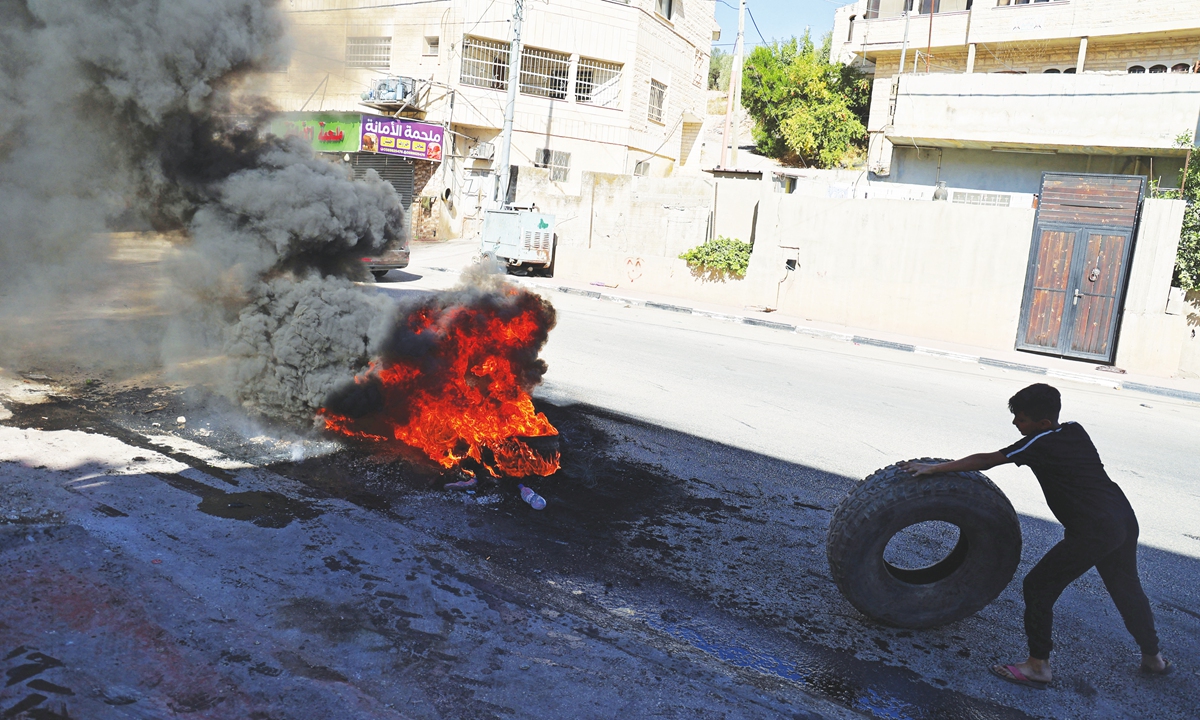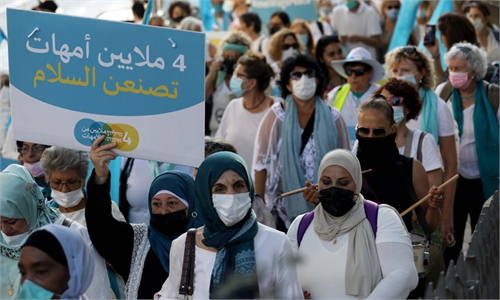Israel aims at curbing Tehran’s ‘peaceful’ program
Iran nuclear ‘red lines’ crossed

A Palestinian demonstrator burns tires at the entrance of the village of Burqin, west of Jenin, in the Israeli occupied West Bank on Sunday. The Palestinian health ministry said a Palestinian man from the village of Burqin, west of Jenin, who had been shot with a live bullet, died from his wounds after reaching hospital. Photo: AFP
Israel's Prime Minister Naftali Bennett said Monday Iran had breached all the "red lines" aimed at curbing its nuclear weapons program, but that Israel "will not allow" Tehran to get the bomb.In his first address to the United Nations General Assembly, Bennett claimed the Islamic republic had in recent years taken "a major leap forward" in its nuclear production capacity and ability to enrich weapons-grade uranium.
"Iran's nuclear weapon program is at a critical point, all red lines have been crossed," said Bennett, who took office in June.
"There are those in the world who seem to see Iran's pursuit of nuclear weapons as an inevitable reality, as a done deal, or they have just become tired of hearing about it," the 49-year-old premier told the world body.
"Israel doesn't have that privilege. We cannot tire. We will not tire. Israel will not allow Iran to acquire a nuclear weapon."
Iran responded rapidly, saying Bennet "played the victim and desperately tried to portray the Israeli regime as innocent."
Israel "desperately attempts to portray Iran's conventional weapon capabilities or its exclusively peaceful nuclear program, which is under the most robust verification of the International Atomic Energy Agency, as a challenge to regional stability," Payman Ghadirkhomi, second secretary for Iran's UN mission, told the assembly.
"This is but a hypocritical move to distract attention from the real danger posed to regional peace and security by this regime, particularly its nuclear-weapon arsenals and clandestine and unsafeguarded nuclear installations and activities."
Ghadirkhomi also slammed Israel for "hampering" the establishment of a nuclear weapon-free zone in the Middle East, as well as for its activities in the Palestinian territories.
Iran, which says its nuclear program is for civilian purposes, said Friday that it expected talks to resume soon on reviving a 2015 landmark agreement scaling back its program in exchange for sanctions relief.
The agreement started to fall apart in 2018 when the US withdrew from it and reinstated sanctions. Iran in turn again started to ramp up its nuclear activities.
Bennett has not publicly expressed openness to a revived Iran deal but has criticized Netanyahu over what he termed "the gap" between the former leader's rhetoric on Iran and reality.
He told the UN that Iran has enriched "uranium to the level of 60 percent."



